Plan to close roads in Wharton State Forest kicking up dust among locals
Listen-

-
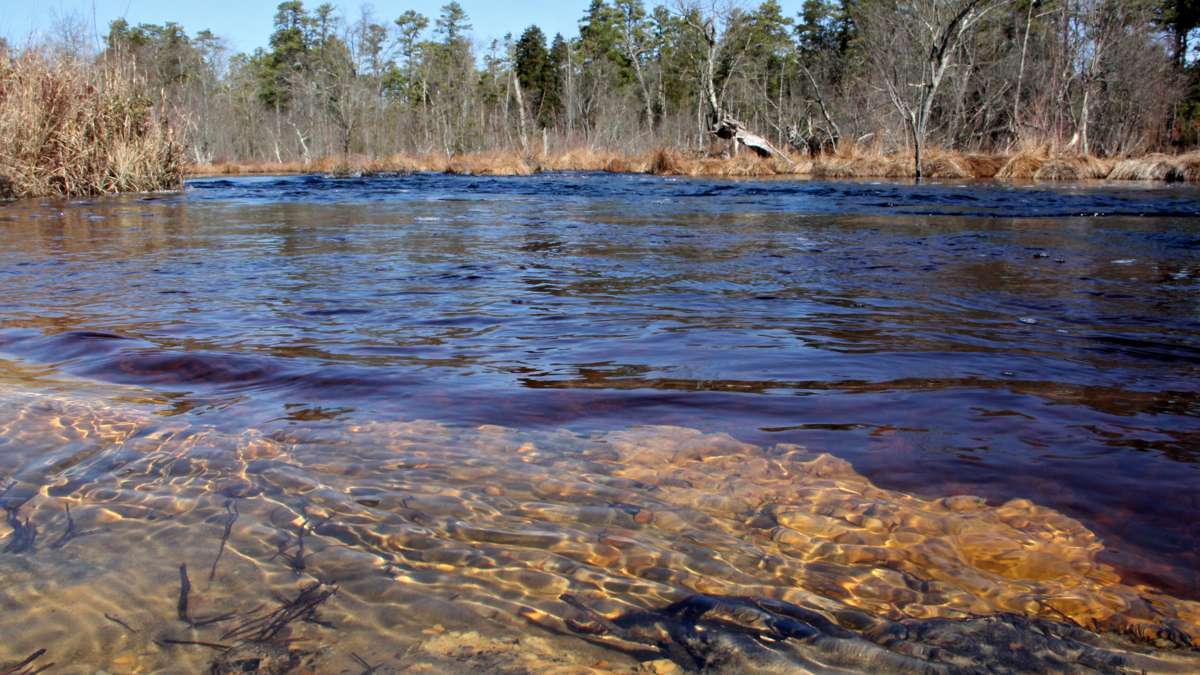
-

-

-

-

-

-

-

-
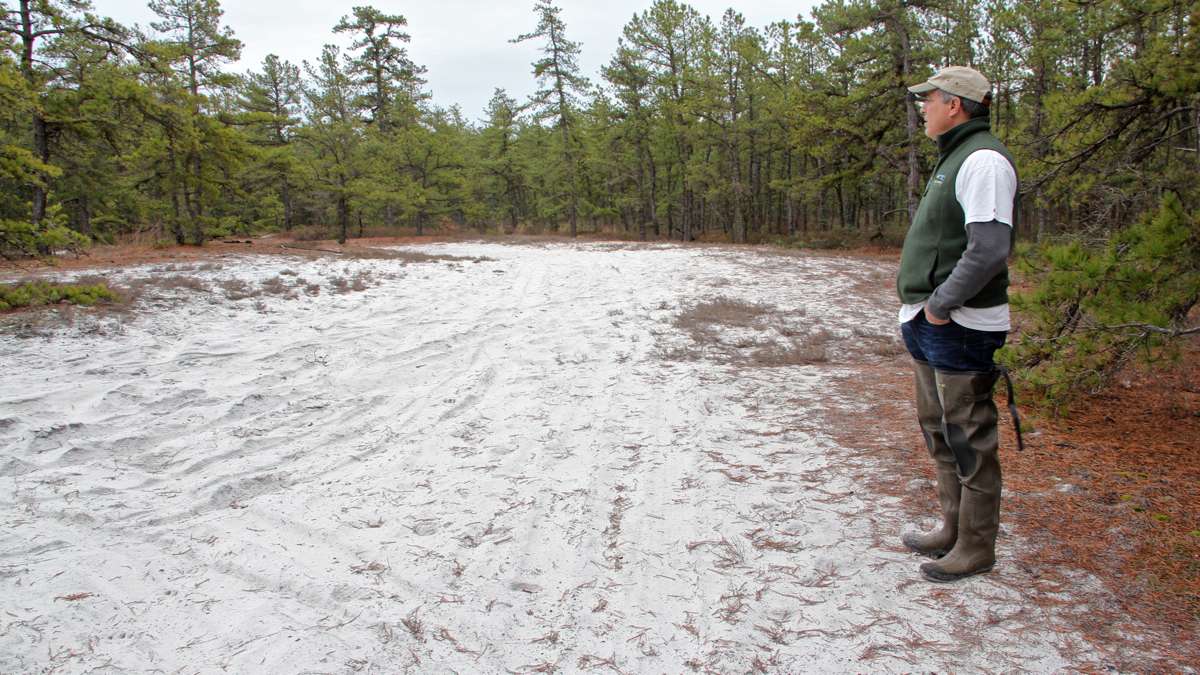
-

-

-
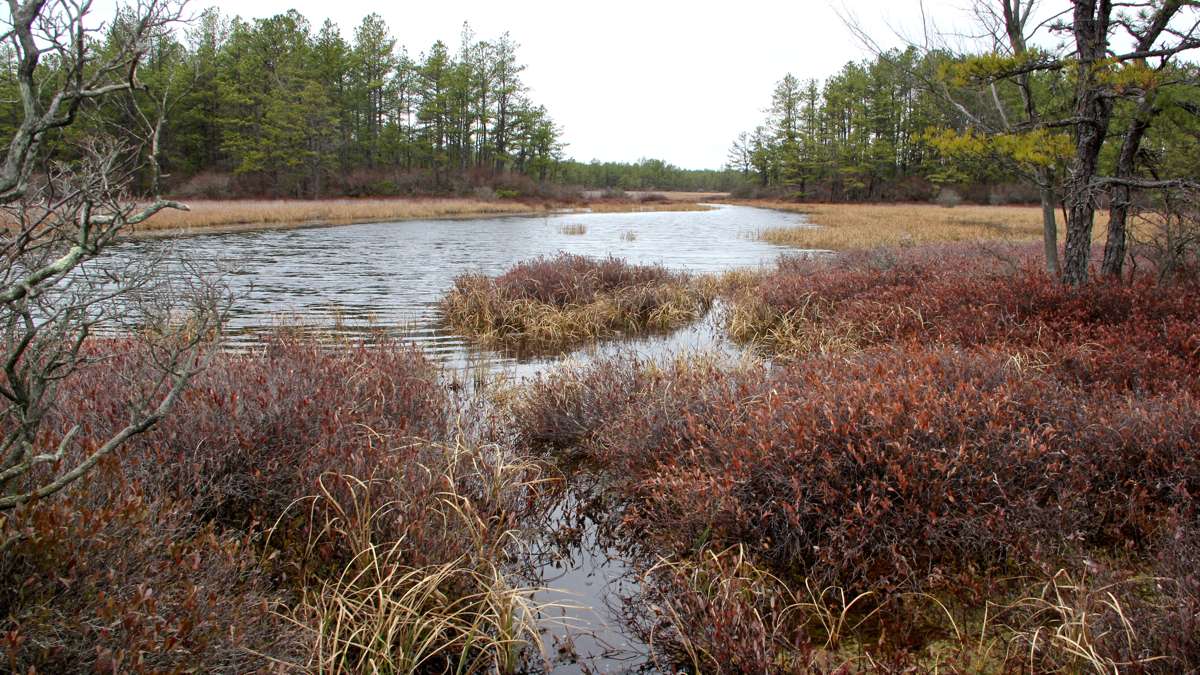
-
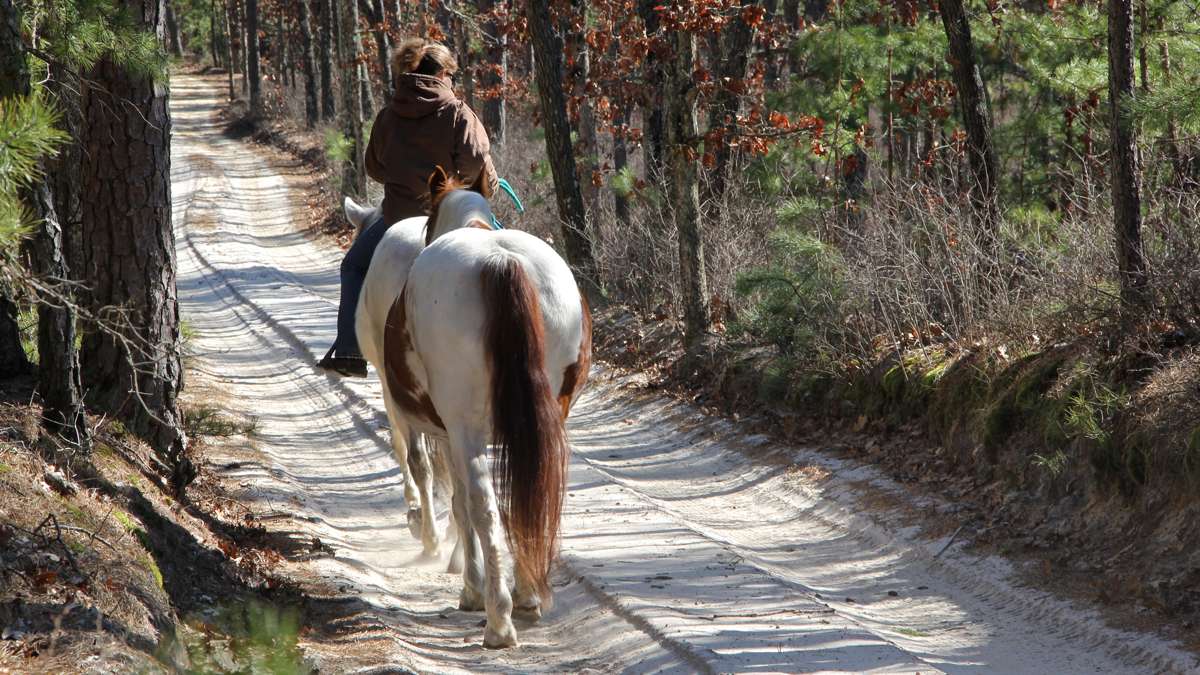
-
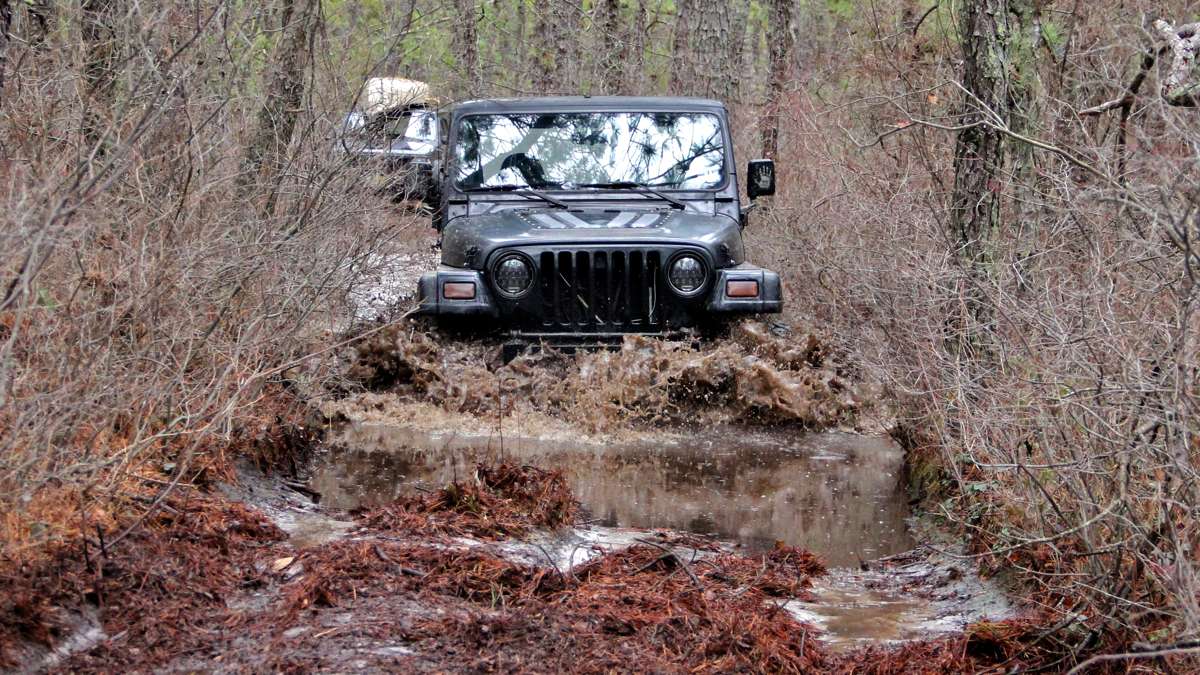
Four-wheel-drive trucks take on a flooded road in Wharton State Forest. (Emma Lee/WHYY)
In a bid to reduce damage from off-road vehicles, New Jersey’s Department of Environmental Protection floated a plan to close off certain roads in Wharton State Forest. After a strident public backlash, DEP pulled the plan.
Just off a sandy dirt road in Wharton State Forest, in the New Jersey Pine Barrens, Emile DeVito points to a plant that could easily pass as a weed to the unschooled eye.
“You see these little gray stems right here? This is a little vine called Pickering’s morning glory. This is one of the rarest plants in the Pine Barrens.”
DeVito, manager of science and stewardship at the New Jersey Conservation Foundation, said the species is facing possible extinction here because of damage to its population by off-road vehicles.
“In the mid-1990s, there were over 300 plants here. This was the biggest population of Pickering’s morning glory in the Pine Barrens,” he said. “And that’s the last plant. That’s the only one that hasn’t been run over.”
Off-roading — the pastime of driving modified Jeeps, SUVs, and trucks through deep water, mud, and otherwise dicey terrain away from main roads — has grown in popularity in the Pine Barrens.
The more off-roaders drive in secluded areas of the region, the more damage they cause to plants, animals, and the environment, according to DeVito.
“[There are] dozens if not hundreds of places that were these once pristine, spectacular wetlands filled with endangered species, and they’re being turned into mud holes where everything is completely destroyed,” he said.
A quick YouTube search turns up dozens of videos by off-roaders driving through deep puddles, through vasts muddy expanses, or up and down steep hills.
Many of those activities are illegal already — driving off the road in Wharton is prohibited — but according to many people who regularly use the forest, enforcement is minimal.
Last summer, in a bid to reduce damage from off-road vehicles, the state Department of Environmental Protection floated a plan to close off certain roads in the forest, cutting off access points to areas where the agency said off-roading was occurring. (More than half of the roads in the forest would have been closed, by one estimate.)
After a strident public backlash, DEP pulled the plan. But the debate over whether to close roads has continued since then, as people on both sides of the issue wait to see what the department’s revised plan will look like.
Many groups depend on forest access
But to frame this as a story of environmentalists vs. off-roaders would leave out a vast group of people who also go to the forest for recreation and hope the roads will stay open.
“Pretty much every user group of the forest — offroaders, hunters, kayakers, canoers, geocachers — all essentially oppose the current plan,” said John Druding, one of the founding members of Open Trails NJ, a group started in response to the DEP’s road closure plan.
Druding is not an off-roader — he mostly hikes and kayaks with his wife and kids — but under the original plan, the road to one of his family’s favorite picnic spots in Wharton on the edge of the Mullica River would have been closed, meaning they would have had to park about a mile away and walk.
“Two kids — 6 and 3 — two kayaks, all the gear, lunch, all that kind of stuff, trying to carry that to the river would’ve been … extremely difficult,” he said with a laugh. “The kids would’ve been done by the time we got there.”
Open Trails NJ boasts dozens of members from a variety of user groups — from hikers and bikers, to birders and historians, to botanists and hunters, to dirt-bike riders and off-roaders.
“We’re reasonable people that really care about the forest and we want to try to solve the problems that are out here,” said Druding. “But we want to do it with practical solutions and not just mass closures of all the roads.”
Druding said many users want increased enforcement of illegal off-roading and additional education about how to use Wharton and other state forests.
Open Trails NJ has also offered to supply and install wooden posts near sensitive areas, which would prevent off-road vehicles from getting through without the need to completely close the road.
An online petition against the state’s plan had nearly 5,000 signatures.
Questions of priority
But waiting for a solution that everybody can agree on means the already devastating damage will only continue to worsen, said Ryan Rebozo, director of conservation science at the Pinelands Preservation Alliance.
“If you were to stop all vehicles from coming at all, we’re talking decades before you get any kind of semblance of vegetation in that area or any structure to that soil again,” said Rebozo.
He and other environmentalists hope the DEP sticks to its original plan to close some roads in Wharton. Rebozo said the future of the Pine Barrens is on the line.
“Of course people have the right to recreate, and driving is part of that, but when the recreation has a direct impact on the habitat and why this area is protected, we have to reconsider where that kind of recreation can happen,” he said. “What’s the priority here?”
As the DEP learned when it first floated its Wharton road closure plan, the priority is often access to forest, which has endured a long history of outdoor activity.
“It has survived the industrialization of the eastern seaboard of the United States on a scale that is miraculous,” said Tabernacle resident Tom Hedden. “To say that it is this fragile wilting violet is … incorrect.”
Since scrapping the plan in November, the DEP has been reaching out to a wide range of groups for ideas on how to deal with damage from off-roaders.
The agency, which declined to comment for this story, is expected to release an update on its plan this week.
WHYY is your source for fact-based, in-depth journalism and information. As a nonprofit organization, we rely on financial support from readers like you. Please give today.




